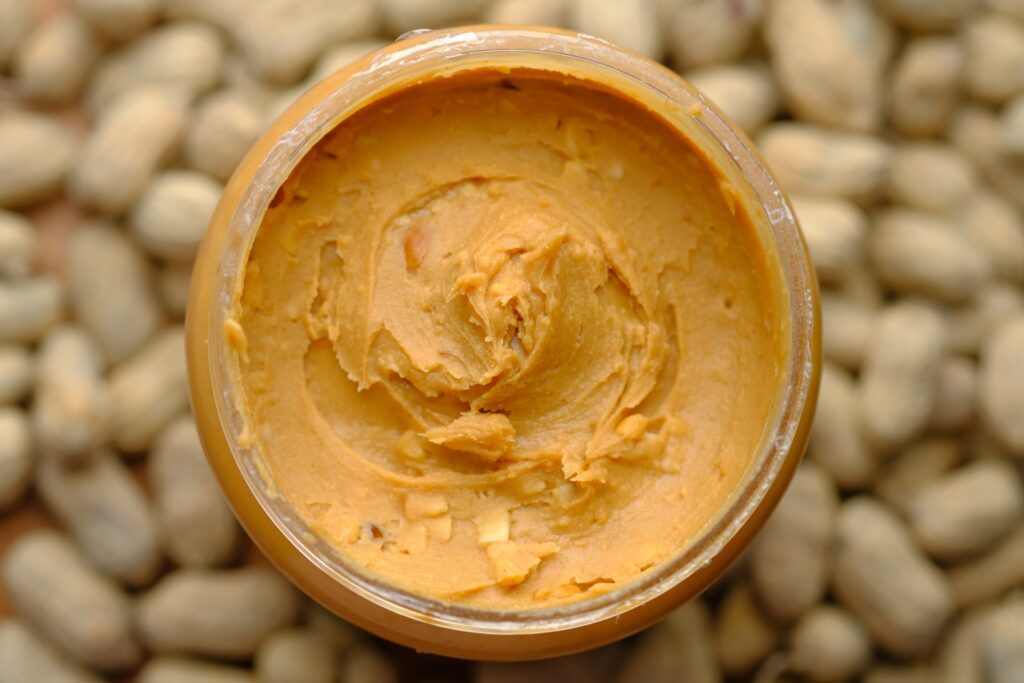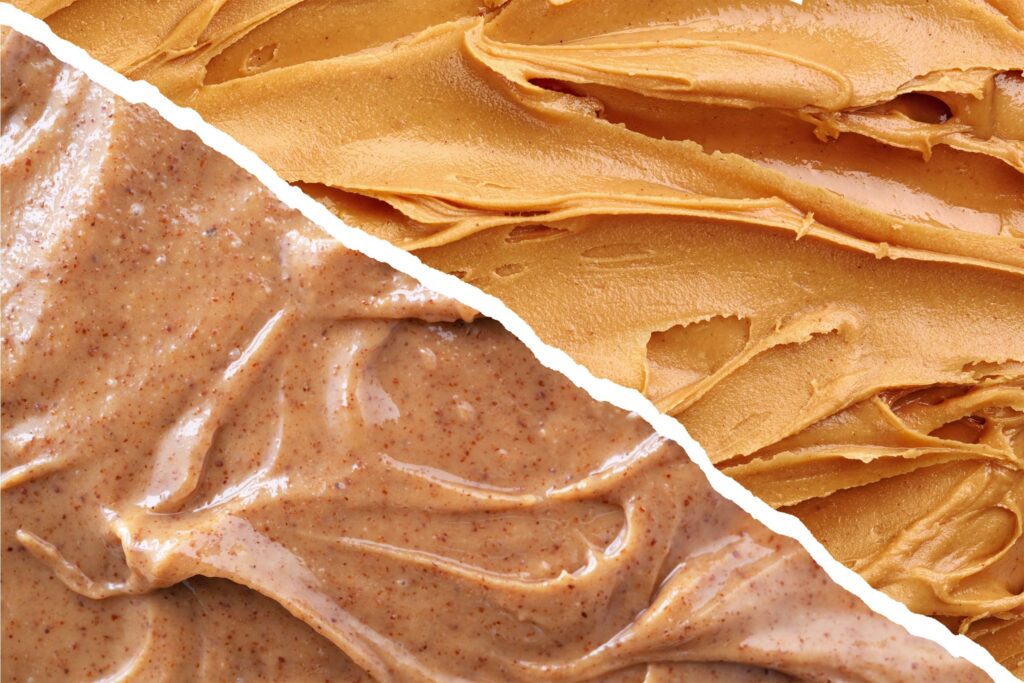Think back to your childhood and peanut butter was most likely a prevalent part of growing up. And if you are reading this, you most likely have peanut butter in your kitchen right now. Times change and almond butter is a rising star in the world of nut butters. But does peanut butter reign supreme? Is it nutritionally better than peanut butter? How about the taste? We have the answers you’ve been looking for.
If you are wondering what the differences are – here is your guide to almond butter vs peanut butter.
Peanut Butter Benefits and Nutrition

Peanut butter is one of the most popular types of spreads around the world. The texture is scrumptious, whether you like it smooth or crunchy. Not only that, but peanut butter goes with so many things, not only jelly sandwiches.
Peanut butter creation is simple. Often it is peanuts ground into the consistency of a paste. Yet, it is important to keep in mind that not all peanut butter is created equal. Big commercial brands often add things that make the spread less than nutritious.
Our product tastes great and there are no chemicals or preservatives. Choosing an all-natural brand of peanut butter gives health benefits like non-GMO and gluten-free alternatives.
Almond Butter Benefits and Nutrition

Almond butter’s creation is like peanut butter where it is nuts ground into a spread. Some are from roasted almonds and some come from raw almonds. Almond butter also comes in crunchy and smooth formulations as well as stir and no-stir.
And like peanut butter, the health benefits and nutrition are almost the same. Almond butter does take a slight lead in some areas. It has more healthy fats, calcium, iron, and vitamin E – an antioxidant.
Our all-natural cinnamon almond butter is one of the most nutritious snacks available. It not only curbs your sweet tooth, but gives your body nutrients, protein, minerals, and vitamins.
Why Make the Switch?
Honestly, you don’t have to switch from one to the other. It all depends on your preferences. Almond butter is a bit more nutritious, but they are similar. When it comes down to the wire, both are good for you and both have health benefits.
Keep in mind that when comparing the nutritional value of almond butter vs. peanut butter, it also depends on the brand. Commercial brands often have added things like preservative – as mentioned before. And if you’re focused on good-for-you foods, who wants that?
Here is a comparison of the two:
- When it comes to calories per ounce both are the same. Two tablespoons of either peanut or almond butter contain a bit under 200 calories.
- Peanut butter and almond butter have high amounts of monosaturated fats. This is the good kind of fat that links to blood sugar control and can minimize heart disease. Compared side-by-side, almond butter has more monosaturated fat by almost 25 percent.
- In the fiber department, almond butter wins again. While all nuts contain fiber, two tablespoons of almond butter has a little over 3 grams. Peanut butter has almost 2 grams. Fiber is helpful in weight control because it makes you feel fuller faster.
- Vitamins and minerals are an important factor in healthy food like nut butter. In comparison, almond butter is the front runner. Yet, both have healthy amounts of potassium, biotin, calcium, magnesium, vitamin E, and zinc. When comparing the two, almond butter has more vitamin E, iron, and calcium.
- One of the main benefits of nut butters is protein. In this comparison, peanut butter has more than almond butter. While there isn’t a major difference, peanut butter has around a gram more than almond butter per serving.
- Both contain omega-3 fatty acids. These help to protect you from heart attack, stroke, and heart disease.
Healthline sums up some of the health benefits of including nut butters in your diet:
Research has shown time and again that people who regularly include nuts or nut butters in their diets are less likely to have heart disease or type 2 diabetes than those who don’t eat nuts regularly. Research also suggests that regular consumption of nuts doesn’t contribute to obesity, despite the fact that nuts are high in calories.
Most studies find that the type of nut or nut butter doesn’t matter. For example, a study in over 6,000 women with type 2 diabetes found that eating five or more servings of either nuts or peanut butter per week significantly lowered the risk of cardiovascular disease.
What About Taste?
Some people love peanut butter and some love almond butter. The taste is similar in both but almond butter does have a more nutty, richer flavor. Some love the stronger almond taste in almond butter, while others love the smoother peanut flavor in peanut butter. When it comes down to it, it is simply a matter of personal preference. Yet, you can’t go wrong no matter which one you prefer.
Why Choose Just One?

There’s no reason why you can’t enjoy both peanut butter and almond butter (unless you have an allergy). Both have nutritional value and both are a good source of plant-based protein. Betsy’s Best nut and seed butters are enhanced with a blend of distinctive, functional ingredients that provide a delicious and unique flavor profile and health-minded nutrition: chia seeds, cardamom, cinnamon, organic honey, and Himalayan pink salt.
Even better? They’re craveable! They come in delicious flavors people love, all crafted from healthy and natural ingredients. Flavors like cinnamon peanut butter with chia seeds and cinnamon almond butter and chia seeds. They’re ideal for sandwiches, dipping, spreading, and eating off the spoon. All of Betsy’s Best nut butters are a sweet, low sugar treat and perfect for adding to recipes. And you know what else? Your kids will love this healthy treat – we guarantee it!

